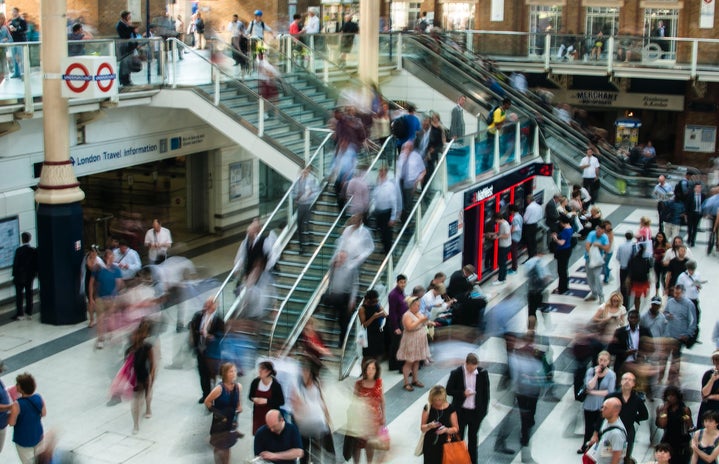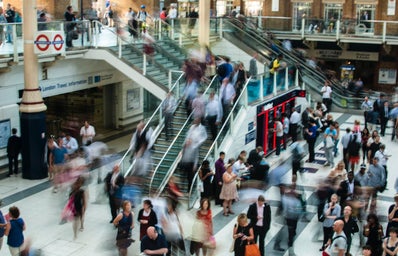Now more than ever, we are seeing a surge in the exchange of information. This is an expected consequence of living in what has been dubbed “the information age.” Every day, we are bombarded with multiple streams of information: social media, 24-hour news, and the internet at large. With all this access, it’s easy to get swept up in the sheer volume of it all. We’re exposed to violence worldwide, injustices in our home countries, and casual social transgressions at a breakneck pace. The effect that this has on us can not be overlooked. The constant stream of information can sometimes suffocate, leaving us feeling helpless and overwhelmed.
This feeling can be described as information overload, a phenomenon that has become more prevalent lately despite being introduced in the 60s. Information overload is caused when people are given access to an excessive amount of information, to the point that they don’t know what to do with it. I’ve narrowed the causes of this overload in modern society to three main sources: the 24-hour global news cycle, social media’s doomscrolling problem, and the internet’s misinformation issues. There could be others, but these are the ones I believe are most prominent.
The 24-hour Global News Cycle
If you’ve watched any national news station for an extended period, you’ll notice that their broadcasts and shows all report on the same stories repeatedly. And, regardless of when the news actually broke, everything seems to be classified as “breaking news.” This is the 24-hour news cycle at work. The 24-hour news cycle refers to the back-to-back nature of national news broadcasts, with constant reporting. This is meant to be compatible with the packed lifestyles of many Americans, who usually only have a second to catch the news before going on about their day. Although this is a good idea in theory, it’s contributing to the problem at hand in practice.
The news cycle adds a sense of urgency and stress to events that are going on, regardless of when or where they happened. We’re presented with atrocities across the world and in our backyards, with each hour bringing more information than we can handle. Although it is good to be knowledgeable about what’s happening in the world, the level of information can quickly become overwhelming. The more we know, the more helpless we seem to feel. We may have the urge to help, but being that we’re probably far away and disconnected from those being impacted, it usually just makes us anxious, sad, and angry.
Social Media’s Doomscrolling Problem
Doomscrolling is the act of continued engagement with news and social media despite the content being depressing, overwhelming, or anxiety-inducing. For example, when a tragedy strikes, we often head to social media to figure out what’s happening. After we find the information we need, we should be done. However, many of us get sucked into the stream of information and don’t stop scrolling for minutes to hours on end.
After a certain point, we don’t gain any useful information from doomscrolling. Yet, we can’t seem to stop. We continue to take in information that stresses us out, leading to a similar feeling of helplessness that the news brings. Unsurprisingly, the doom and gloom of this information ends up depressing us. This problem seems to combine the excess information and urgency that comes with the news with an odd desire to know more about bad things happening in the world. It’s like we’re witnessing a car crash but can’t look away.
The Internet and Misinformation
Misinformation on the internet is not a new problem. In fact, it only becomes more dubious as the years go by. Among the heaps of websites and articles, it’s easy to fall victim to misinformation. Despite being false, the misinformation we find on the internet can still contribute to overload. Sometimes we find contradictory information online and seek out more details. Or, to avoid being misinformed, we continue to research a topic. Both can lead people down rabbit holes, contributing to a helpless, overloaded state. Of course, the internet as a whole, being that it’s a giant database of information, contributes to overload. However, I’ve found that the specific desire to find the most accurate information is what sends us spiraling.
How to Disconnect and Combat Information Overload
Now that we’ve outlined some sources of information overload, how can we combat it? I hate to say, “just turn off your phone,” but honestly, that’s some of the best advice I can offer. Cutting off some information streams, even if it’s just not watching the news, could help fight information overload. Even if it’s just a few hours a day, separating yourself from overwhelming news sources is a must. You can also try to limit the details you retain when it comes to a specific situation. Everything you take in doesn’t need to take up space in your brain; some of the details can be tossed out.
Although having access to so much information can be useful, the consequences should not be ignored. It’s great to learn, but we can definitely know more than we’re meant to.





